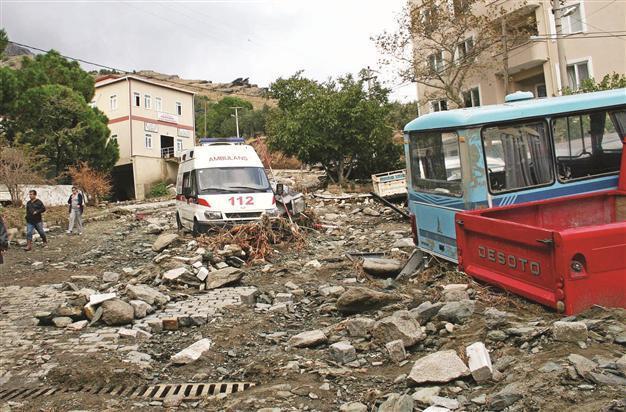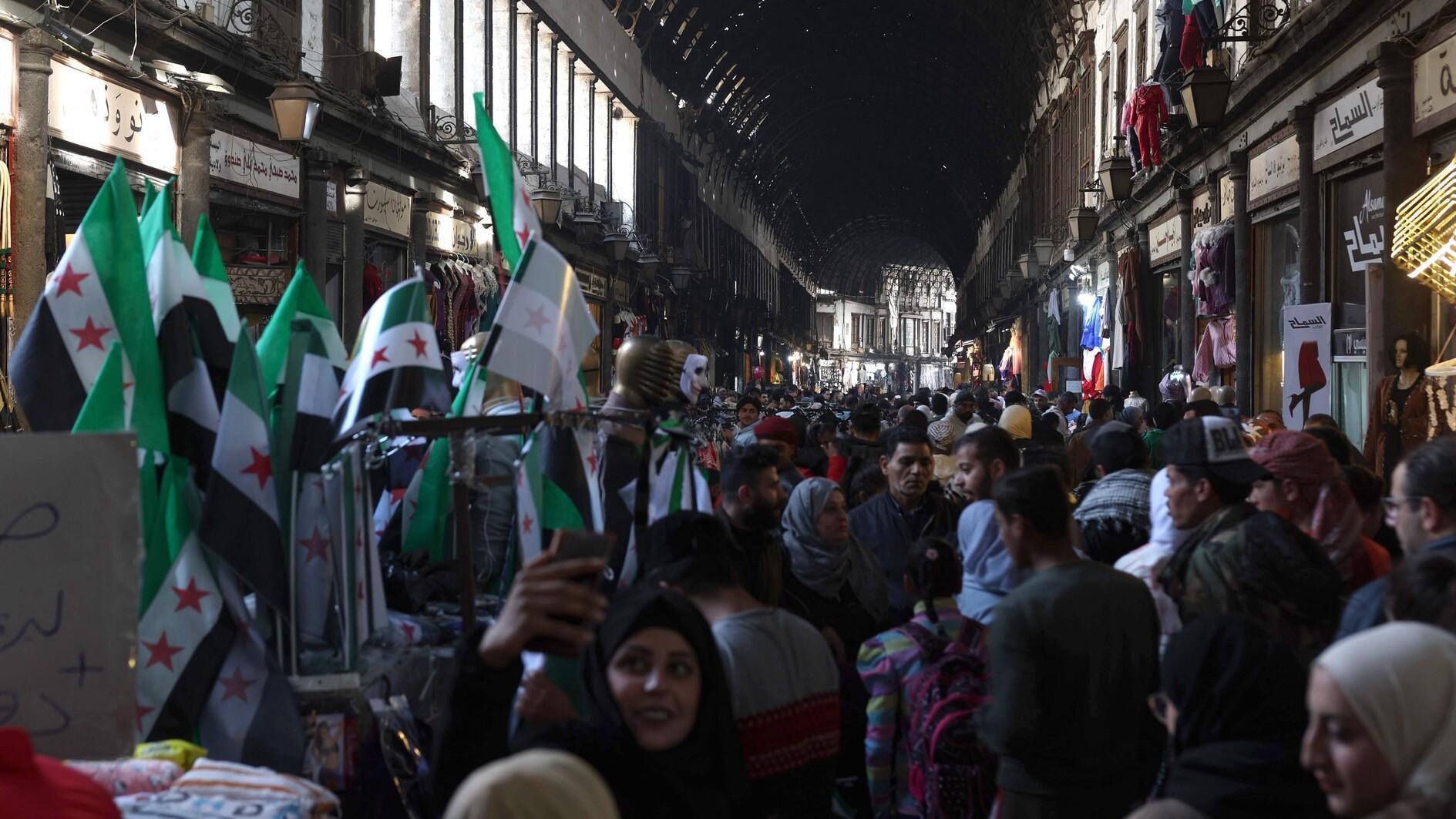Marmara, Avşa dealing with flood aftermath
MARMARA / AVŞA

The heavy rains caused severe damage on the islands of Avşa and Marmara in the Marmara Sea, although no casualties were reported. AA photo
Two tiny islands in the Marmara Sea were yesterday dealing with the aftermath of the heavy downpour and floods that struck the country’s northwest on Oct. 22.According to initial figures, 33 houses and workplaces were severely damaged on the flood-stricken Marmara Island, while the figures reached 150 on nearby Avşa Island. The water distribution network on Marmara Island has been severely damaged due to storms, forcing residents to use bottled drinking water for all their water needs.
Marmara Mayor Ali Aksu told Doğan news agency that the island had been without running water for days. “We are afraid of an epidemic, we are totally devastated,” he said, adding that work to clear the streets of mud was still ongoing.
The district governor, Can Kazım Kuruca, told Anatolia news agency that the material damage on the island was serious, but added that the flood had left no human casualties.
Energy network reparied
“We have repaired the damage in the energy distribution network. In the long run we are planning to take the energy network underground in order to prevent any similar catastrophe from happening in the future,” he said. Kurucu also said three commissions had been formed to determine the overall material damage on the islands.
Heavy downpours also hit provinces in Thrace and Istanbul. Floods occurred in Istanbul’s Beykoz and Sarıyer districts on Oct. 23, leaving many homes and workplaces under water. The Riva highway in Beykoz was blocked due to a landfall and collapsing trees caused by the rain, while the banks of the Çorlu Creek in the northwestern province of Tekirdağ burst and triggered a flood that left a neighborhood of 1,000 people under water.
In Istanbul’s Sarıyer district, the heavy rain that started during the late hours flooded the streets, causing people to have difficulty walking on the streets and causing vehicles to get stuck in the flood.
Many homes, barns and greenhouses were left under water in Beykoz’s Alibahadır, Değirmendere, and Paşamandıra districts, and a number of animals were reportedly killed in flooded barns. Electricity was also cut off in several villages due to the transformers in the region breaking. Fire crews from neighboring districts were sent to Beykoz.
Meanwhile, Istanbul Technical University’s Meteorological Engineering Department member Professor Orhan Şen said such heavy rain would continue in Turkey due to the effects of global warming. He said the overall world temperature had increased by two celcius this year, primarily caused by greenhouse gasses emitted by fossil fuels.
















